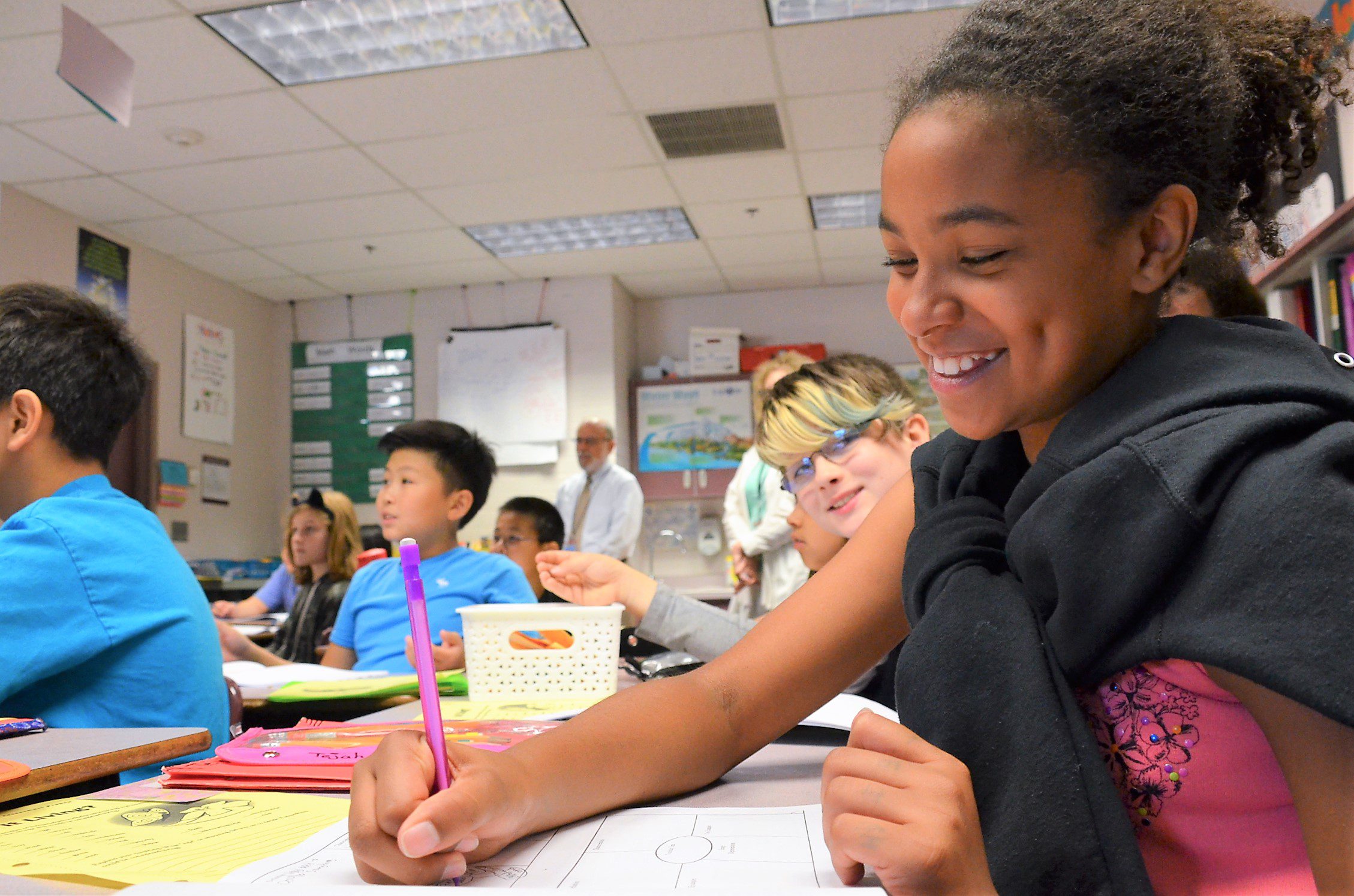
Students know an equity champion when they see one. In recent CEL equity leadership focus groups, our CEL team asked students to describe their “hero principal.” Students shared attributes of a hero principal like “a history of fighting for social justice” with the skills to create school experiences that acknowledged and centered their voices and needs, especially the experiences of students often not seen and heard. For example, one student said, “I crave the diversity of others. It’s hard. It’s important to learn to work with people who are different and people who think differently.”
Students also told us that they need school leaders who continually listen to understand students’ experiences and perspectives.
Still, it is not enough for principals to listen if they do not have a shared vision, intentional support, and ways to collaborate with their central office leaders to transform student experiences. And getting there is complicated.
That is why our CEL team spent this past year refining the Principal Support Framework. This effort involved further articulating CEL’s equity stance and incorporating what we have learned from talking with students, families, school and district leaders, and aspiring leaders regarding how to support principals in serving as equity-driven, student-focused leaders. Now, with an additional action area focused on creating an inclusive leadership culture, the Principal Support Framework provides a touchstone for continuous reflection and collaboration between central offices and principals to become the champions students need.
The Principal Support Framework: A Practical, Student-Centered Approach
To bridge the gap between where school districts are and where school districts need to be on their equity journeys, the Principal Support Framework offers guidance in four areas:
- Foster an inclusive leadership culture focused on creating equitable experiences and outcomes
- Co-create a shared vision of principals as leaders of equitable schools
- Create a system of support for principals to grow as leaders of equitable schools
- Develop a strategic partnership between the central office and principals
While these categories may sound abstract, the work to get there is not. At CEL, research and our experiences with school system leaders across the country tell us that this work must start with the self and involves showing up day in and day out as courageous, curious, caring, humble humans.
Specifically, central office leaders must continually broaden their understanding of the context and consequences of injustice and oppression; gain awareness of their own biases, and deepen their ability to have courageous conversations to name inequitable practices and structural racism both inside and outside of the organization.
As educators become more self-aware and can clearly name systemic and structural inequities, districts must also build integrated and strategic partnerships between principals and central office leaders, with mechanisms for effectively partnering with students and communities to ensure a solid throughline to students’ social, emotional and academic wellbeing. By bringing our authentic selves to creating human-centered connections, central office leaders have a chance at overcoming the challenges of power dynamics and hierarchies before they stop forward momentum.
Meeting Yourself and Your System Where They Are
Developing a vision of equity leadership and the support it requires demands that central office leaders face challenging problems with curiosity and courage. An excellent example of this approach in action occurred in one of our partner school systems. Their journey involved seeking out the feedback of students and stakeholders to find out how their stakeholders perceived and experienced equity school leadership. Then, the district used the input to craft a new shared vision. They created a new and aligned professional learning framework to begin actualizing this vision. This effort demonstrated an effective way to respond to a recurring theme we heard from stakeholders, “consider how the superintendent and other senior leaders can play an intentional role in signaling a ‘new district.'”
What can other systems learn from this example? Every system has different dynamics in play, and this work can address the many pressure points currently facing administrators. There is no benefit to waiting for the right time. The key is to begin and then keep the learning and momentum going while remembering that this work requires all of us. During the equity-leadership focus groups, our CEL team consistently heard the need for a “clear commitment to the system’s vision for equitable student experiences and outcomes by ensuring sponsorship throughout the system.”
Avoid potential paralysis with the daily practice of showing up as your most humble, caring, curious and courageous self and then using the Principal Support Framework as a focusing tool for collective, sustained effort. By establishing a shared vision, shifting culture, and consistently building the capacity of principals and central office leaders to be equity leaders, school systems can then begin to see aligned progress towards transforming experiences and outcomes for all students, especially those students furthest from justice.
While our systems certainly were not designed to do this work, we believe that change is possible, one day at a time, aligned with the most knowledgeable among us: our students.

